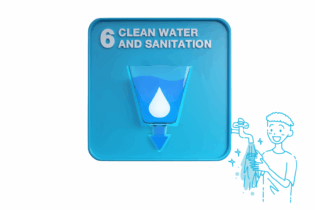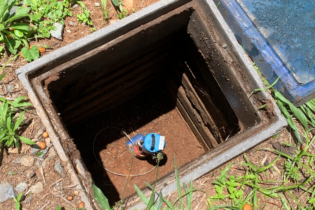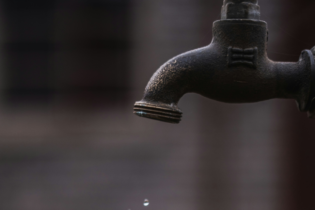The Nailsea-Uganda Water Project is a church-led venture to help an impoverished area of Africa and has the backing of Tearfund, a leading relief and development Christian charity.
The idea came from a United Nations millennium goal to end world poverty and halve the number of people living without sustainable access to safe drinking water and basic sanitation. However, when asked to sign a ‘mission statement’ at its meeting last week which pledged financial aid and included a funding target of £90,000 to be raised in three years the council balked. Council chairman Rod Lees said: “This scares me – we have a policy to support the project but we aren’t a fundraising organisation and we reject this ‘contract’ which includes a clause to give six months notice to terminate the agreement’.” Councillor Mary Ponsonby went further with her criticism accusing the church organisers of using ‘backdoor tactics’ to get people to commit to the project. And resident David Jones said: “It is an extraordinary document and as a rate payer I will vigorously campaign against the council signing on behalf of the community.” But water project chairman Roger Evans, of Southfield Road Church, explained the mission statement had been misinterpreted. Mr Evans said: “We are not doing anything by the back door. “The money will be collected by fundraising – we already have £15,000 in the bank. “We are not asking for money but for support.” Council vice chairman Clare Hunt and councillor Phil Barclay were invited to meet Bishop Cranmer Mugisha and his wife Mama Hope from the Diocese of Muhabura when they visited Nailsea earlier this year. Mrs Hunt said: “No public money is going to this project – we cannot underwrite this scheme. “Our involvement is on a personal level and its aims of provided safe drinking to this Ugandan community are admirable.” Mrs Hunt coordinated the jubilee programme and there are links with Nailsea benefitting from a water project in the time of Queen Victoria with the opportunity to mark Queen Elizabeth’s 60th anniversary in a similar way. Researching the history of water in Nailsea it was discovered that mains water wasn’t piped into the town until 1905. Prior to that water for drinking and washing had to be carried miles by children before they went to school much as it is done in Africa today. Wraxall Mill was one place where water was collected daily in buckets by those who didn’t have wells. But by 1850 a benevolent Thatcher’s brewery paid £200 for a water pump powered by an undershot wheel in the flow of the Land Yeo to be installed at Knightswood spring in the Birdcombe Valley.And any water that the brewery did not need was made available to the local people.
This provided safe drinking supply for the village in the days before piped water. As late as the 1920s drinking water was fetched from the local inn in buckets. The capping stone carved with the word ‘Victoria Jubilee 1897’ is all that remains and is built into the wall beside the Friendship Inn. This stone was originally inserted at the top of the brickwork of the tank. Modern plumbing and sewerage systems have not only vastly improved the nation’s medical record but also paved the way for rapid social and economic development. Now a group of people in Nailsea want to do the same for 4,000 people living in 12 rural villages in Uganda. The Rev Jolyon Trickey, of Holy Trinity church, had set out the goals of the project for the council back in March 2011. He said: “Today, Britain has 354,066km of sewers – enough to stretch to the moon and back. “Our drinking water is the purest it has ever been and we are world leaders in plumbing and sewerage systems. “We are enjoying the benefits that safe water and basic sanitation can bring – so why do we lack the enthusiasm for promoting them in countries which sorely need them?” Mr Evans added: “After many months of preparation the Nailsea-Uganda Water Project is starting to roll! “We are raising money to provide clean water and basic sanitation for six remote villages in south west Uganda, reaching 35,000 people.” Reverend Trickey said: “The project draws together the people of Nailsea to make a difference to those whose lives are much worse off than ours. “We suggest we can change the pictures of children carrying water and drinking what is effectively sewage into pictures of free flowing, safe and easily accessible water. “Currently, women and children in Uganda will walk for two or three hours every day to fetch water, which is often polluted.” Source: http://www.nailseapeople.co.uk





